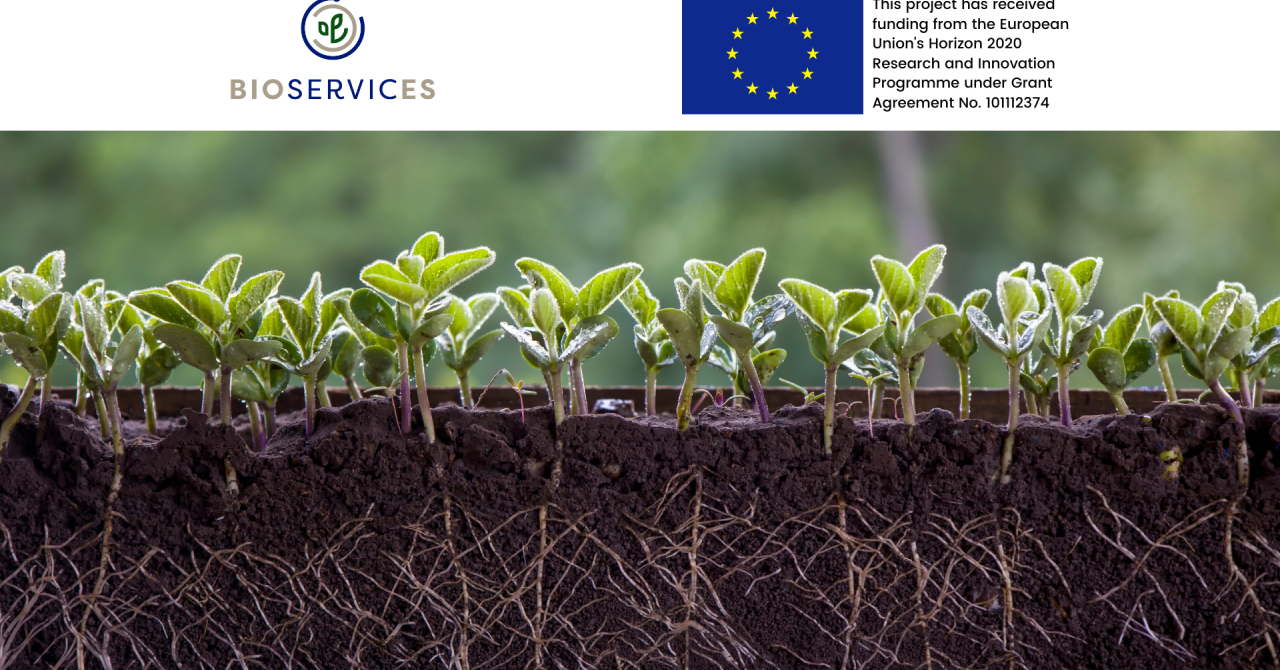The main goal of BIOservicES is to comprehend the connection between various soil organisms such as viruses, bacteria, archaea, fungi, protists, nematodes, microarthropods, earthworms, isopods, millipedes, insects, and spiders, and how they contribute to the delivery of multiple soil ecosystem functions and services at different scales, taking into account different land uses and climate change. This will contribute to the Soil Mission objective 6, ”Improve soil structure to enhance habitat quality for soil biota and crops”.
The project seeks to identify the pressures and drivers affecting soil organisms and their services, perform an economic valuation of their ecosystem contribution, and develop decision-support tools and models helping to design climate-resilient management practices and monitoring, conservation, and restoration programs.
"Our mission is to spread awareness and provide information about the significant role that soil organisms play in our environment. Although their importance in delivering multiple ecosystem services is well-established, there is still a lack of research regarding the correlation between key soil organisms and the delivery of crucial ecosystem services in different land uses."
"By unraveling the intricate connections between soil organisms and ecosystem services in diverse environments, BIOservicES seeks to bridge the knowledge gap and pave the way for informed decision-making", declares Raul Zornoza, the BIOservicES Project Coordinator and professor at the Polytechnic University of Cartagena.
Several pressures are currently affecting soil processes across multiple land uses in Europe. Twenty-five experimental sites, with a range of low, medium, and high soil health owing to management practices, have been selected in different regions, such as Alpine biogeographic regions in Switzerland, Atlantic and Mediterranean regions in Spain, Continental regions in Germany, and Boreal regions in Latvia, covering eight different land uses to study the implementation of sustainable management practices.
The project comprises an interdisciplinary team, from universities to NGOs, private companies, and other entities from different European countries and the USA, with expertise in research, agriculture, social innovation, and communication. The project coordinator is the Polytechnic University of Cartagena, responsible for managing the project and ensuring a smooth collaboration between the partners while considering ethical requirements.
The BIOservicES project, led by the Polytechnic University of Cartagena and coordinated by Professor Raul Zornoza, started in September 2023. BIOservicES aims to understand the interconnection between soil organisms and the delivery of multiple soil ecosystem functions and services at different scales, identifying the pressures and drivers resulting from different land uses and climate change, and performing an economic valuation of the contribution of soil organisms to ecosystem services.
The partners involved in the BIOservicES project include the Institute for Agricultural, Fisheries and Food Research - Belgium, Thünen Institute and Federal Research Institute for Rural Area.
 Mihai - Cristian Ioniță
Mihai - Cristian Ioniță












Any thoughts?